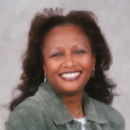 Georgene Rice interviews Charles Plumb, a POW & chaplain, discusses his book I’m No Hero, in which he draws parallels of his POW experience and everyday life.
Georgene Rice interviews Charles Plumb, a POW & chaplain, discusses his book I’m No Hero, in which he draws parallels of his POW experience and everyday life.
In an excerpt from the book Charles is asked how he could take six years of filth, brutality, and loneliness as a prisoner of war. His response was that he “joined the ranks of millions of Americans who have applied heroic principles in overcoming hardships. Every day a disabled veteran steps away from his wheelchair. Every day a life is resumed after a death in the family. Friendships erase loneliness. Addicts throw away the crutch of alcohol or drugs or obsessions. Every day someone discovers how to love life, no matter what the obstacle. Every day someone sees the light at the end of the tunnel. These ordinary Americans are not held in esteem as heroes, yet they have suffered grave misfortune and have recovered just as I. So you see, I’m no hero.
Georgene: Tell us how your experience as a prisoner of war shaped your view of the world and how you see that experience relating to everyday life.
Charles: I see my experience in the prison camps in Vietnam as sort of a Petri dish of the challenging events we all face in our lives. I’m convinced you can be in as much of a prison going through a bad divorce or losing a child, or even losing your job. It is your response to the situation that makes the difference, just as my choices for responses could have been to the prison situation. I could have crawled into a corner and atrophied and died. Instead I tried to find some meaning to the situation, lived one day at a time, and kept the faith.
Georgene: When you were captured you were imprisoned and tortured. What was it that gave you the capacity to survive?
Charles: As a military man I had gone through four survival schools to teach me to be a POW. I actually feel that training was a waste of time. Practicing being a POW is like practicing bleeding and with the training you always knew it was just training, and there was an end time to the training session. As a POW there is no end it site. Even though we were optimistic that we would be released there was no guarantee the enemy wouldn’t just line us up, shoot us, and no one would hear of us again.
Our survival had more to do with how we were brought up—with our baseline core values—the things we learned in the sandbox and that our parents taught us. The thing my mother taught me was forgiveness, which was one of the primary factors in making it through and I think it is a primary factor in going through life. You need to be able to forgive others and to forgive yourself. But, it took me a few months to be able to come to the point of forgiveness. The natural first instinct is to lash out to whoever is closest to us, to blame others for the problem, and to feel sorry for ourselves. I blamed the president for the war, the enemy for torturing me, the mechanic of the plane, and my God for putting me into the situation.
We used to pass along messages to each other in secret communications. In one of the messages, I received a quote that made a lot of sense to me—“acid does more harm in the vessel that stores it, than on the subject it’s poured”. After a few months I realized blaming myself or others wasn’t helping me and certainly wasn’t hurting the enemy. I decided to adopt my mother’s forgiving nature and things got a whole lot easier.
Georgene: Good Friday really is about reconciliation and forgiveness. We are living in a challenging time. There is economic strain and strain on the family, often times circumstances less than ideal. You can put our challenges into perspective and let us look at the choices we have for responding.
Charles: I really believe that is the essence of life, and I believe that is what builds your character. It is as you said, the challenge you face and how you respond to those challenges. Until you are challenged you don’t know what you are made of. Adversity is a terrible thing to waste. What I mean by that is that with every challenge comes an opportunity. This is hard to tell people when they are going through troubled times but I think that I am living proof that the challenges in life have within them an invitation for greatness. You don’t have to accept the invitation, but I believe it is there.
Georgene: You certainly responded to that invitation to greatness very well and we are looking forward to hearing your story this Friday at the breakfast.
Captain Charles Plumb will be speaking at the annual Portland Good Friday Breakfast on Friday, April 22, 2011 at the Oregon Convention Center.
Disclaimer: Articles featured on Oregon Report are the creation, responsibility and opinion of the authoring individual or organization which is featured at the top of every article.


